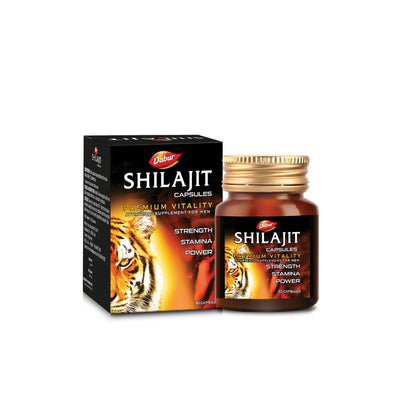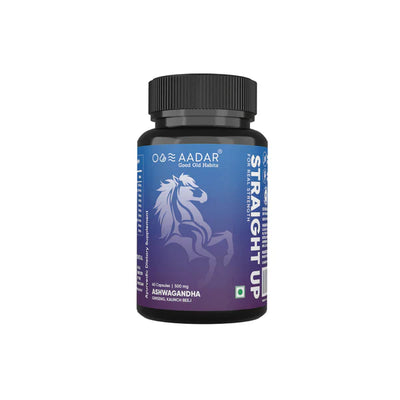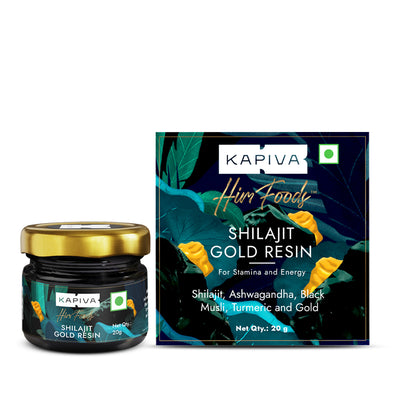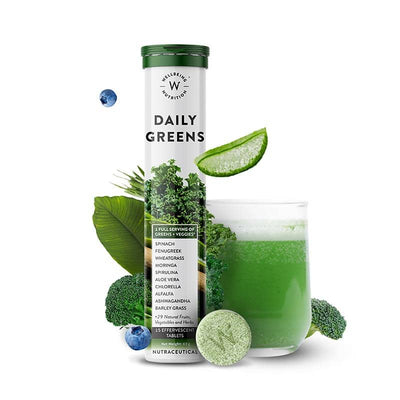15 Ayurvedic Remedies for Gas And Acidity
No one is immune to a gassy stomach. As embarrassing as it can be, it is an uncomfortable experience that can often lead to other problems like bloating, stomach cramps, heaviness, and heartburn. When excess gas gets collected within the gastrointestinal tract, the condition is called flatulence. While there are many ways like some people buy digestive health supplements to tackle and manage the symptoms, some people look for Indian home remedies for gastric burning and acidity. Ayurvedic medicine is best medicine for gastric reflux, one of the world’s oldest holistic approaches to balancing the mind, body, and spirit. In this article, we provide you with a list of 15 Best Ayurvedic gastric reflux remedies in UAE. But before we get into that, let’s see what causes gas and acidity.
What is Acidity?
Food, when consumed, needs to travel through the esophagus (food pipe) to the stomach. This should be a one-way process. Generally, the esophagus tube has a band of muscles that act as doorways that open and shut when food enters the stomach. Its primary function is to keep the stomach's contents separate from the esophagus. Certain factors, like stress and foods like citrus, can cause this sphincter to relax. This may cause backflow of contents like food and acids from the stomach to the esophagus, leading to heartburn. Acid reflux is also known as GERD(Gastroesophageal Reflux Disorder).
This acid reflux may lead you to taste the food acid at the back of your mouth, which can be an unpleasant experience.
The primary symptom of acidity is heartburn, a burning sensation in the chest often accompanied by regurgitation of stomach contents into the throat. This discomfort can extend to the upper abdomen, and individuals may also experience bloating, belching, and a sour taste in the mouth. In severe cases, acidity can lead to ulcers or gastritis.
Typical acidity causes include overeating, consuming spicy or greasy foods, excessive caffeine or alcohol intake, and stress. Gastroesophageal reflux disease (GERD) is a chronic condition where acidity is a prevalent symptom.
Acidity can be managed through lifestyle modifications such as eating smaller, more frequent meals, avoiding trigger foods, maintaining an upright posture after meals, eat your green veggies or consume wellbeing nutrition daily greens , and managing stress. Antacids, or medications that reduce stomach acid production, are also commonly used for relief.
Understanding the causes and symptoms of acidity is essential for effective management and overall digestive health. Consultation with a healthcare professional is advisable for persistent or severe cases of acidity.
What Causes Gas and Acidity?

We all release gas either through the mouth, in the form of belching, or through the rectum.
To first understand the problem, it’s essential to know why it happens in the first place. There are many ways in which you get gas in your digestive system. Firstly, we all tend to swallow air while eating or drinking, which causes gases like nitrogen and oxygen to enter the body. Secondly, during digestion, gases like methane, carbon dioxide, and hydrogen are produced, which accumulate in the stomach, causing discomfort if created in excess and not released.
It also depends on the food you eat daily. Without enough water, your stomach won't easily digest if you consume high-fiber foods like broccoli, cabbage, rajma, chole, and lentils. Your colon, which contains many bacteria, will break the food down as it passes through. During this process, a lot of gas will be released, which, if accumulated, can cause bloating, nausea, acidity, acid reflux, or other uncomfortable symptoms.
Acidity, on the other hand, results from the excess production of stomach acid or its reflux into the esophagus. Contributing factors include a diet rich in spicy or fatty foods, smoking, alcohol, caffeine, obesity, stress, and conditions like gastroesophageal reflux disease (GERD). Identifying and addressing these triggers is key to managing gas and acidity.
Common Foods That Trigger Gas and Acidity
1. Spicy Foods
Capsacian, present in spicy foods, tends to delay gastric emptying. That is, they make foods sit longer in the gastrointestinal tract, which makes the stomach acid leak back into the esophagus, causing heartburn. Also, spicy foods tend to trigger the esophagus, worsening heartburn symptoms. Some individuals may be more sensitive to spicy and sour foods than others, so they develop acidity quickly after consuming such foods.
2. Sour Foods
Citrus foods and juices being highly acidic can further aggravate the symptoms of acidity. Also, these foods tend to relax the esophageal sphincter, which further contributes to acid reflux. Sour foods, while flavorful, can further contribute to gas and acidity due to their acidic nature. When consumed, sour foods may stimulate excess acid production in the stomach, potentially leading to acidity. Additionally, the tartness can irritate the esophageal lining, increasing the risk of acid reflux and digestive discomfort.
3. White Flour Products
One of the white flours is maida, also known as refined flour. This flour is another contributor to gas and acidity. The refined carbohydrates in maida move quickly through the digestive tract due to the absence of fiber, leading to gas, bloating, and cramping symptoms. Moreover, refined flour is also considered highly acidic, as refining eliminates a significant portion of the grain's natural alkaline minerals, such as magnesium and potassium.
4. White Sugar
Consuming excessive white sugar can lead to digestive issues such as gas and acidity. Sugar can ferment in the gut, feeding the bad bacteria-producing gas while promoting an acidic environment that may cause discomfort, cramping, spasms, and pain. Reducing sugar intake and opting for healthier alternatives can help alleviate these problems.
5. Smoking
Smoking further worsens the symptoms of acid reflux. The nicotine found in cigarettes acts as a muscle relaxant; thus, by relaxing the muscles of the esophageal sphincter, it leaks stomach acid into the esophagus. The same nicotine is also responsible for creating a more acidic environment, worsening your symptoms of heartburn.
6. Excessive intake of Tea & Coffee
Although there are many contradictory studies, some have shown that excessive caffeine intake through tea and coffee may further aggravate your acid reflux symptoms as caffeine tends to lower the esophageal sphincter pressure, which is responsible for the backflow of gastric contents in the esophagus.
7. Alcohol
Alcohol consumption can trigger gas and acidity in several ways. It can relax the lower esophageal sphincter, leading to acid reflux and acidity. Alcohol also irritates the stomach lining, increasing acid production. Additionally, it can disrupt the balance of gut bacteria, potentially causing gas.
Home Remedies for Acidity and Gas

Most of the factors that cause gas, trigger acid reflux as well. Ayurveda states that an imbalanced agni (one of the essential elements) causes a weakened digestive system. So, the best way to treat gas and acidity is by balancing out this metabolic fire by following the below-mentioned Ayurvedic remedies.
Follow these Ayurvedic remedies for gas acidity
1. Asafoetida (Hing):
Asafoetida or hing gives you instant relief from gas or acidity. If you mix half a teaspoon of the spice with lukewarm water and drink it, you'll be able to relieve yourself from excess gas and the resultant acidity. Asafoetida is known for its anti-flatulent, antispasmodic, anti-inflammatory, and antiseptic properties. According to Ayurveda, when vata dosha (space and air) increases in the colon, gases may accumulate and build up. Hing helps to balance out this dosha in the colon. Moreover, you can add a dash of this spice every time you make dishes that cause flatulence, such as legumes, chickpeas, pulses, etc. You can also mix hot mustard oil with hing and massage it around your belly button to give you some relief.
2. Lime juice with baking powder:
Another home remedy that works wonders is lime juice mixed with half a teaspoon of baking soda and water. Drink this concoction soon after your meals, and it will help with the proper digestion of your food. When baking soda is mixed with lemon juice, the sodium bicarbonate of the former reacts with the citric acid of the latter, forming a buffer, i.e., sodium citrate. This is a weak acid or base that balances out the pH levels of the body.
3. Cumin seeds/jeera water:
One of the best natural acidity medicines is jeera water. A tablespoon of cumin seeds boiled in two cups of water for nearly 15 minutes will relieve gastrointestinal problems. Cumin/jeera contains an organic compound called cumin aldehyde, which is known to trigger the salivary glands in the mouth, thereby activating the digestion process. This is followed by another important compound known as thymol, which bolsters the glands that secrete bile, acids, and other enzymes that help digest food in the stomach and intestines.
4. Curd or dahi:
Dahi/curd/yogurt is the best thing you can give your gut daily unless you are lactose intolerant. But for those who aren’t, the probiotics in curd can help reduce flatulence, gas, and even acidity. You can swap your usual sour cream or mayo with curd in all your recipes, as that will be a smart way to add some good bacteria to your meals. Preferably consume homemade dahi or buy the ones whose label reads, ‘live and active cultures.’
5. Ginger:
Ginger or adrak is an excellent Ayurvedic remedy for gas and acts as a carminative. You can either have it in the powdered or grated form. You can also have one teaspoon of grated ginger with a teaspoon of lime juice and lukewarm water every morning. You can also prepare ginger tea, as it is an effective home remedy for flatulence and gives instant relief from trapped gas and acidity.
6. Mint Leaves:
Mint is an effective natural cure for acidity since it lowers acid formation and soothes the burning sensation in your stomach. For relief, chop and boil some mint leaves, then sip the cooled mixture.
7. Jaggery:
Jaggery, a traditional Ayurvedic remedy, can effectively alleviate gas and acidity. Its natural sweetness, derived from sugarcane or palm sap, which is alkaline in nature, helps balance stomach acid. Rich in minerals, jaggery aids digestion and reduces gas formation. Consuming a small amount can relieve these digestive discomforts in Ayurvedic practice.
8. Bananas:
According to Ayurveda, the potassium in ripe bananas aids in removing abrupt acidic episodes. Additionally, bananas help relieve constipation issues and encourage regular bowel movements.
9. Indian Gooseberry:
Indian gooseberry, or Amla, is renowned as one of the best medicine for acid reflux and gas. It is rich in vitamin C and antioxidants, which can soothe the digestive system. Amla's alkaline nature helps balance stomach acidity, reducing discomfort. Consuming Amla in various forms, such as juice(amlakali) or powder, can be beneficial for alleviating these issues.
10. Mulethi:
Mulethi, or licorice root, is a well-regarded Ayurvedic medicine of gas and acidity. Its natural anti-inflammatory and soothing properties can help relieve digestive discomfort. Mulethi helps reduce acid production and protect the stomach lining. Incorporating Mulethi in tea or as a supplement may aid in alleviating gas and acidity.
11. Pumpkin Juice
Pumpkin juice is a traditional Ayurvedic medicine for acidity and gas. It's naturally alkaline and can help balance stomach pH levels, reducing acidity. The soothing properties of pumpkin juice can ease digestive discomfort. Consuming it regularly may relieve gas and acidity, making it a beneficial natural remedy.
12. Tulsi:
Tulsi, or Holy Basil, is an Ayurvedic acidity gas medicine. Its anti-inflammatory and antimicrobial properties can help alleviate digestive issues. Tulsi leaves promote healthy digestion by reducing acid production and soothing the stomach lining. Incorporating Tulsi Valeo Matcha Green tea or leaves into the diet is a popular Indian home remedy for bad-smelling gas and acidity.
13. Cardamom
Cardamom, a popular spice, is frequently used as an ayurvedic treatment for gas reflux(gas) and acidity. It aids digestion by reducing gas formation and promoting better intestinal health. Its natural carminative properties help alleviate discomfort, while its pleasant flavor makes it a valuable addition to dishes or teas to soothe digestive issues.
14. Cloves
Clove is a staple in Ayurvedic medicine for gastric trouble. It has natural carminative properties that can relieve bloating and gas by aiding digestion. Clove's antimicrobial and anti-inflammatory qualities make it an effective choice for soothing digestive discomfort, making it the best ayurvedic medicine for gastric problems.
15. Buttermilk
Buttermilk is a renowned Ayurvedic best medicine for acidity and gas. It's a probiotic-rich beverage that can balance the gut's flora, aiding digestion. The lactic acid in buttermilk helps neutralize stomach acidity and relieves indigestion. Consuming buttermilk regularly is a traditional and effective way to alleviate gas and acidity.
How Ayurveda Improves Digestive Power?

Ayurveda, the ancient system of holistic medicine, emphasizes the vital role of digestive power, or Agni, in maintaining overall health. It employs a multifaceted approach to enhance digestion. Ayurvedic dietary principles prescribe personalized nutrition based on an individual's dosha (Vata, Pitta, or Kapha). Mindful eating practices, such as thorough chewing and mealtime focus, initiate the digestive process effectively. Ayurvedic herbs like ginger and cumin are known for their digestive benefits, while daily routines (Dinacharya) harmonize with nature's rhythms, manage weight holistically with good bug metabolically lean. Detoxification therapies like Panchakarma remove toxins, and yoga and pranayama exercises strengthen the digestive system. Lifestyle choices, including stress management and quality rest, further contribute to robust Agni, promoting optimal nutrient absorption and overall well-being.
In Conclusion:
Acid reflux, commonly termed acidity, develops when food or other contents, such as acids, travel backward at times up to your esophagus and throat, causing symptoms like heartburn, regurgitation, and discomfort.
While these Ayurvedic remedies can help your gut, you can also try out Wellbeing Nutrition Apple Cider Vinegar , a Prebiotic supplement that supports your digestive health, neutralizes toxins, improves metabolism, and helps prevent other gut-related issues. With 36 billion (CFU) active live cultures per serving, your gut microbiome will thrive and be healthy, ex all digestive problems like acidity, gas, and bloating, to name a few.
FAQ’S
1. Which Ayurvedic medicine is best for gas tablets?
Panchamrit Effervescent Tablets is one of the best Ayurvedic medicine for gas trouble but it varies depending on individual factors, and it's recommended to consult with an Ayurvedic practitioner for personalized guidance.
2. How can I reduce gas permanently?
Reducing gas permanently often involves dietary modifications, such as avoiding gas-inducing foods, maintaining a regular eating schedule, using fast acting melts gut oral strips and addressing any underlying digestive issues with the guidance of a healthcare professional.
3. What stops gas naturally?
Natural methods to reduce gas include avoiding gas-producing foods, chewing food thoroughly, and incorporating digestion-friendly herbs and spices like ginger or fennel into your diet.
4. Which fruit is good for gastric?
Banana melon, apples, and pears are often considered good for digestion and can help with gastric issues.
5. Does drinking hot water relieve gas?
Yes, drinking hot water can help relieve gas by promoting digestion and soothing the digestive system.













